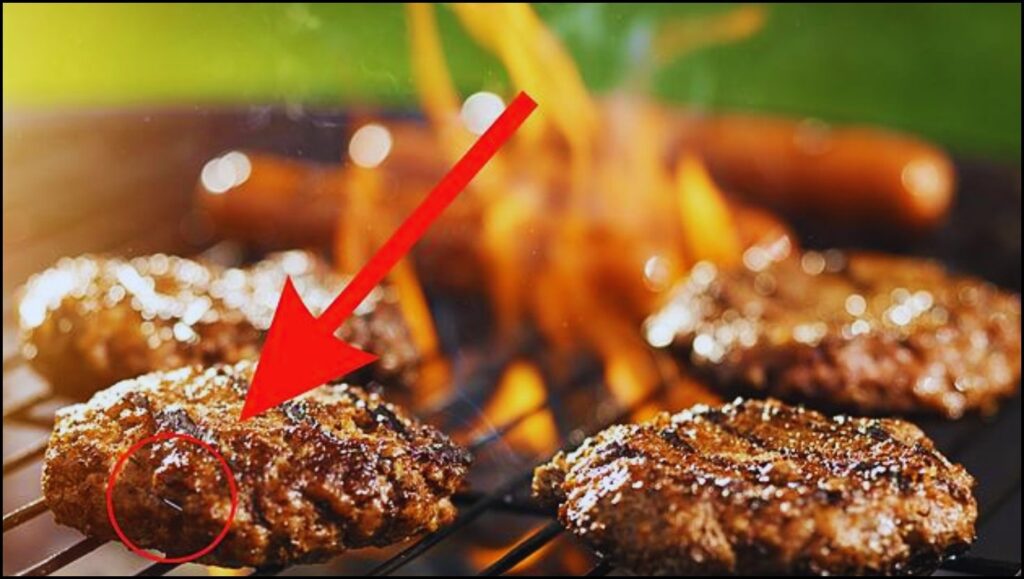The Growing Medical Concern Over Wire-Bristle Grill Brushes
Emergency physicians and health agencies are warning consumers about the significant dangers of wire-bristle grill brushes. Detached metal bristles can be accidentally ingested, causing severe internal injuries that are difficult to diagnose and often require surgery.

As families across the globe fire up their barbecues, emergency physicians and health agencies are issuing stark warnings about a common cleaning tool: the Wire-Bristle Grill Brushes. Small, sharp metal bristles can break off, cling to grill grates, transfer to food, and cause severe, sometimes life-threatening, internal injuries if ingested, a dangerous outcome that has prompted calls for greater consumer awareness and safer alternatives.
The Growing Medical Concern Over Wire-Bristle Grill Brushes
| Key Point | Detail / Statistic |
| Significant Injury Risk | From 2002 to 2014, an estimated 1,698 emergency room visits in the U.S. were attributed to wire-bristle brush injuries. |
| Common Injury Sites | The most frequent injuries occur in the mouth, throat (oropharynx), and esophagus. Perforations of the intestines have also been reported. |
| Detection is Difficult | Bristles are small and thin, often missed by standard X-rays, requiring more sensitive CT scans or direct endoscopic procedures for diagnosis. |
| Calls for Safer Use | Health agencies like Health Canada advise consumers to regularly inspect brushes for damage and consider alternative cleaning methods. |
The Scope of a Deceptive Danger
For many, cleaning the grill is a routine part of the outdoor cooking experience. But the metal brushes used for the task harbor a hidden risk of foreign body ingestion. Over time, the bristles on these brushes can degrade from heat and use, eventually detaching and remaining on the grill surface. When food is cooked on that surface, the stray bristle can become embedded in a piece of meat or a vegetable and then swallowed. Once ingested, these small metal wires can cause immense damage. “The biggest misconception is that it would just pass through your system,” said Dr. David Grand, a professor of diagnostic imaging at Brown University’s Warren Alpert Medical School, in a university news release. “But if it gets lodged, it can cause a lot of damage.”
A 2016 study published in the journal Otolaryngology–Head and Neck Surgery analyzed data from the Consumer Product Safety Commission and found that Wire-Bristle Grill Brushes injuries were more common than many realize. The study, led by researchers at the University of Missouri, estimated nearly 1,700 Americans went to an emergency room between 2002 and 2014 after ingesting bristles. The most common complaints were pain in the mouth, throat, and abdomen.
A Difficult Diagnosis
One of the primary challenges for medical professionals is locating the bristle once it is inside the body. The wires are thin and can be easily missed on an X-ray, leading to diagnostic delays that can worsen the patient’s condition.
“These wires can migrate and perforate the bowel wall, which is a very serious condition that can cause infection and require surgery,” stated Dr. C.W. David Chang, the lead author of the 2016 Missouri study. He noted that because symptoms can be non-specific, such as abdominal pain or trouble swallowing, both patients and doctors may not initially suspect a foreign object.

The U.S. Centers for Disease Control and Prevention (CDC) has also highlighted the issue, publishing a Morbidity and Mortality Weekly Report that detailed several cases. In one instance, a 50-year-old man presented with severe abdominal pain after a barbecue. An initial CT scan was inconclusive, but a second, more detailed scan revealed a wire bristle perforating his small intestine, requiring emergency surgery.
Promoting Grilling Safety and Safer Alternatives
In response to the growing body of evidence, health experts and consumer safety advocates are emphasizing prevention and promoting grilling safety. They are not necessarily calling for an outright ban but are urging consumers to be more vigilant and consider other options for cleaning their grills.
How to Stay Safe
Health Canada has issued specific recommendations for those who use a Wire-Bristle Grill Brushes:
- Inspect Before Use: Check the brush for any signs of damage, such as loose, bent, or broken bristles.
- Replace Regularly: Do not use brushes that are old or worn out. Discard them immediately.
- Examine the Grill: Before cooking, carefully inspect the grill grates for any stray bristles that may have come loose during cleaning.
- Consider Alternatives: Explore other methods for cleaning a grill.
There are numerous bristle-free alternatives available on the market that eliminate the risk of ingestion. These include:
- Nylon Brushes: These are designed for use on cool grills and do not have metal parts that can break off.
- Wooden Scrapers: These tools are made of wood and conform to the shape of the grill grates over time.
- Pumice Stones or Grill Blocks: These abrasive blocks effectively scour away residue without leaving behind dangerous fragments.
- Aluminum Foil: A simple, cost-effective method is to crumple a piece of heavy-duty aluminum foil into a ball, hold it with tongs, and scrub the grates while they are still hot.
Industry and Regulatory Stance
To date, there have been no widespread government-mandated recalls of wire-bristle grill brushes in the United States. The Consumer Product Safety Commission (CPSC) is aware of the hazard and has received numerous incident reports. However, the agency has stopped short of issuing a ban, instead focusing on consumer education.
Some industry groups, such as the Hearth, Patio & Barbecue Association (HPBA), have also emphasized user responsibility. They encourage consumers to follow manufacturer instructions for product use and maintenance, including regular inspection and replacement of worn-out brushes. The ongoing reports of injuries continue to fuel the debate about whether warnings are enough. For the doctors who treat these preventable injuries, the message is clear. “It’s a public health issue,” Dr. Grand stated. “Awareness is the most important thing so people will be careful when they’re grilling.”
Before You Cook: A Guide to the 5 Foods You Shouldn’t Eat from Your Vacation Rental








